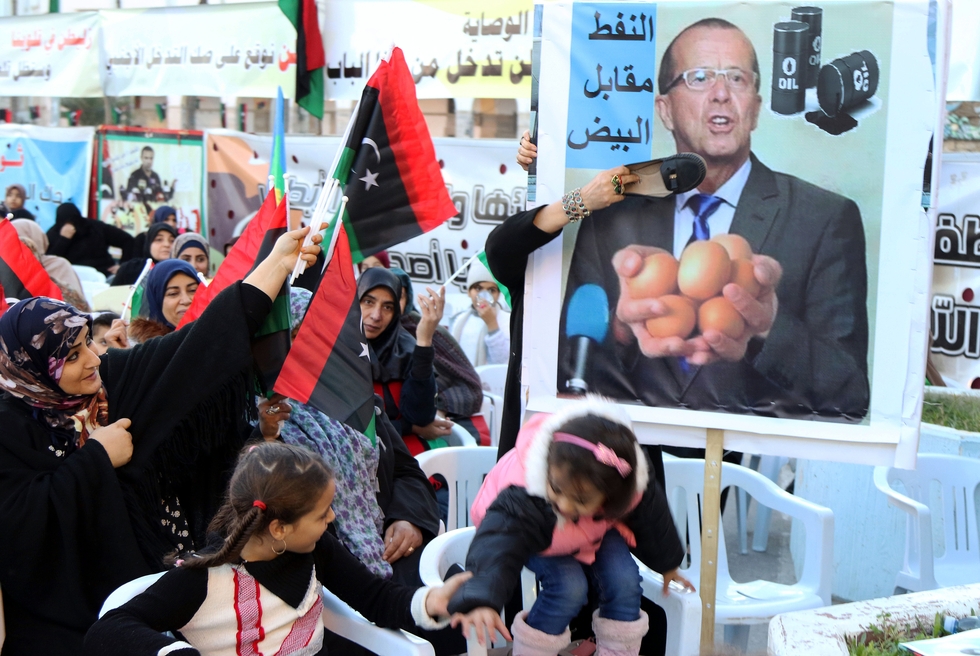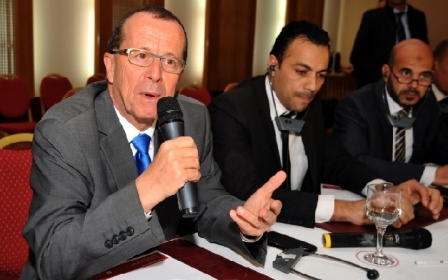Libya unity thrown into chaos as MPs reject UN-backed government

Libya's internationally recognised Tobruk-based parliament has rejected a UN-backed national unity government, in a major blow to international efforts to end the country's political schism.
The Tobruk parliament, also known as the House of Representatives, rejected the deal in a vote on Monday.
"We voted against endorsing the government and ask... to be presented with another government," parliamentarian Ali al-Gaydi said.
Parliament member Al-Saliheen Abdelnabbi said the government had been rejected because its cabinet was too large.
He called for "a smaller government without this high number of ministries".
The UN and Western diplomats had urged Libyans to back the agreement as a step toward ending the political chaos and strife that have gripped the country since the 2011 revolution.
Libya currently has two rival administrations and parliaments, with the internationally recognised authorities based in the east and a militia-backed authority holding power in Tripoli.
Politicians have for days been heading to the eastern city of Tobruk - where the 176-member legislature has been based for a year and a half - for the two votes, parliament member Fahmy Tuwaty said.
A national unity government headed by businessman Fayez al-Sarraj was formed last week under the UN-sponsored accord, but it needed the backing of the Tobruk parliament.
The Reuters news agency said only 104 of 176 members attended for the vote, with 89 voting against backing the government proposed by Libya's Presidential Council last week.
Middle East Eye propose une couverture et une analyse indépendantes et incomparables du Moyen-Orient, de l’Afrique du Nord et d’autres régions du monde. Pour en savoir plus sur la reprise de ce contenu et les frais qui s’appliquent, veuillez remplir ce formulaire [en anglais]. Pour en savoir plus sur MEE, cliquez ici [en anglais].




